Panellists
Nobel Laureates * Alphabetical Order
-
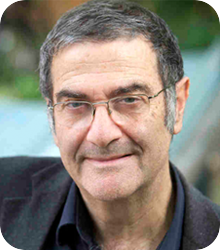 Physics 2012
Serge Haroche
Physics 2012
Serge Haroche
-
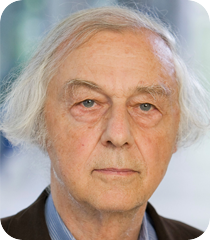 Chemistry 1988
Robert Huber
Chemistry 1988
Robert Huber
-
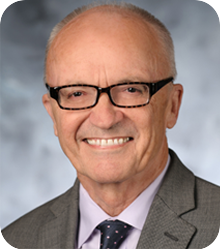 Economic Sciences 2004
Finn Kydland
Economic Sciences 2004
Finn Kydland
-
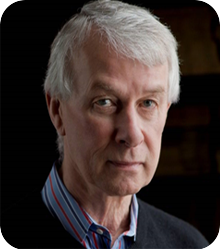 Physiology or Medicine 1993
Richard Roberts
Physiology or Medicine 1993
Richard Roberts
-
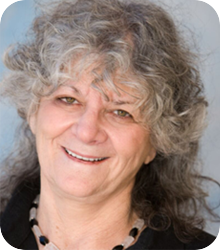 Chemistry 2009
Ada Yonath
Chemistry 2009
Ada Yonath
Nobel Prize Dialogue Seoul 2017
-
-

- Physics 2012 Serge Haroche
-
Serge Haroche was born in 1944 in Casablanca. He graduated from Ecole Normale Supérieure (ENS), receiving his doctorate from Paris VI University in 1971. After a post-doctoral visit to Stanford University, he became full professor at Paris VI University in 1975, a position he held until 2001, when he was appointed Professor at Collège de France (in the chair of quantum physics).
He has been part time professor at Yale University (1984-1993), member of Institut Universitaire de France (1991-2000) and chairman of the ENS Department of Physics (1994-2000). In September 2012, he has been appointed “Administrateur du Collège de France” (equivalent to President of this institution), a position he held until September 2015. Since then, he is Professor Emeritus at Collège de France.
Serge Haroche’s research has mostly taken place in the laboratory Kastler Brossel at ENS. His main research activities have been in quantum optics and quantum information science. He has made important contributions to Cavity Quantum Electrodynamics (Cavity QED), the domain of quantum optics which studies the behaviour of atoms interacting strongly with the field confined in a high-Q cavity, a box made of highly reflecting mirrors.
Serge Haroche has received many prizes and awards, culminating in the 2012 Nobel Prize in physics, shared with David Wineland.
- PROGRAM
-
- 09:40 ~ 09:50
- Short talk on why the educational outreach/Nobel Prize Dialogue matters (Auditorium, COEX 3F)
- 10:45 ~ 11:00
- Conversation on The Century of Vision (Auditorium, COEX 3F)
- 14:15 ~ 15:00
- Technological Innovations (Harmony Ballroom, InterContinental Seoul COEX B1F)
- 16:30 ~ 16:55
- Nobel Laureats discussion on creativity (Auditorium, COEX 3F)
-
-
-

- Chemistry 1988 Robert Huber
-
Robert Huber was born in 1937 in Munich. He studied chemistry at the Technische Universität München (TUM), where he also completed his PhD and habilitation. Since 1972, he has been a member of the Max-Planck-Gesellschaft, and was Director at the Max-Planck-Institut für Biochemie until his retirement in 2005. From 1976, he also served at the TUM as a Professor.
Huber has made major contributions to the understanding of the structure and function of biological macromolecules. He has studied proteases and their natural and synthetic inhibitors, metalloenzymes (iron, nickel, molybdenum, copper), proteins of the immune system (antibodies and antibody receptors), protein hormones and their receptors, protein kinases, enzymes of amino acid biosynthesis, enzymes of cofactor and vitamin biosynthesis and proteins of energy and electron transfer.
In addition, he has contributed to the development of instruments for data collection and to methods in protein crystallography, particularly Patterson methods, graphic methods, and refinement, to the use of electron-rich metal clusters, and most recently to the methods and instruments for crystal improvement.
He has been honoured by numerous honorary doctorates, professorships, memberships in learned societies and awards, including the Otto-Warburg Medal, the Emil von Behring Medal, the Sir Hans Krebs Medal, the The Linus Pauling Medal, Max Tishler Prize and, in 1988, the Nobel Prize for Chemistry together with H. Michel and J. Deisenhofer.
- PROGRAM
-
- 10:45 ~ 11:00
- Conversation on The Century of Vision (Auditorium, COEX 3F)
- 14:15 ~ 15:00
- Attitudes to Ageing (Harmony Ballroom, InterContinental Seoul COEX B1F)
- 16:30 ~ 16:55
- Nobel Laureats discussion on creativity (Auditorium, COEX 3F)
-
-
-

- Economic Sciences 2004 Finn Kydland
-
Finn Kydland is the Jeffrey Henley Professor of Economics at the University of California, Santa Barbara (UCSB), and the Richard P. Simmons Professor of Economics (part-time) at the Carnegie Mellon University (CMU) campus in Doha, Qatar.
Professor Kydland received his BA from the Norwegian School of Economics (abbreviated NHH in Norwegian), and his PhD from CMU. After previous appointments at NHH, CMU, and the University of Texas at Austin, he joined the UCSB faculty in 2004, where he is also the director of the Laboratory for Aggregate Economics and Finance. He is a Research Associate for the Federal Reserve Bank of Dallas.
Professor Kydland was awarded the Nobel Prize in Economics in 2004 jointly with Professor Edward Prescott of Arizona State University. Professors Kydland and Prescott received the Prize for their research on business cycles and macroeconomic policy, specifically, the driving forces behind business cycles and the time inconsistency of economic policy. More recently, Professor Kydland has conducted research on aspects of the role of monetary policy, domestically as well as internationally, on the sources of the unusually sluggish recovery from the 2008-09 great recession, and on the virtual full stop in productivity growth in Spain, Italy and Portugal since the early 1990s.
- PROGRAM
-
- 09:50 ~ 10:05
- Reflections on the Future of Ageing (Auditorium, COEX 3F)
- 11:45 ~ 12:10
- How will increased longevity change society? (Auditorium, COEX 3F)
- 15:15 ~ 16:00
- Economic Opportunities of Ageing (Harmony Ballroom, InterContinental Seoul COEX B1F)
- 16:30 ~ 16:55
- Nobel Laureats discussion on creativity (Auditorium, COEX 3F)
-
-
-

- Physiology or Medicine 1993 Richard Roberts
-
Dr. Richard J. Roberts is the Chief Scientific Officer at New England Biolabs, Beverly, Massachusetts. He received a Ph.D. in Organic Chemistry in 1968 from Sheffield University and then moved as a postdoctoral fellow to Harvard.
From 1972 to 1992, he worked at Cold Spring Harbor Laboratory, eventually becoming Assistant Director for Research under Dr. J.D. Watson. He began work on the newly discovered Type II restriction enzymes in 1972 and these enzymes have been a major research theme.
Studies of transcription in Adenovirus-2 led to the discovery of split genes and mRNA splicing in 1977, for which he received the Nobel Prize in Medicine in 1993.
During the sequencing of the Adenovirus-2 genome computational tools became essential and his laboratory pioneered the application of computers in this area. DNA methyltransferases, as components of restriction-modification systems are also of active interest and the first crystal structures for the HhaI methyltransferase led to the discovery of base flipping. Bioinformatic studies of microbial genomes to find new restriction systems are a major research focus as is the elucidation of DNA methyltransferase recognition sequences using SMRT sequencing.
- PROGRAM
-
- 10:05 ~ 10:30
- Why do we age? The science of ageing (Auditorium, COEX 3F)
- 15:15 ~ 16:00
- Strategies for Healthy Ageing (Harmony Ballroom, InterContinental Seoul COEX B1F)
- 16:30 ~ 16:55
- Nobel Laureats discussion on creativity (Auditorium, COEX 3F)
-
-
-

- Chemistry 2009 Ada Yonath
-
Ada Yonath focuses on protein biosynthesis and antibiotics paralyzing it. She graduated the Hebrew University, earned Ph.D. and from Weizmann Institute and completed postdoctoral studies at Mellon-Institute and MIT, USA.
In the seventies she established the first structural-biology laboratory in Israel. Currently she is the Director of Kimmelman Center for Biomolecular Structure at Weizmann Inst. Previously she also headed the Max-Planck-Research-Unit for Ribosome Structure in Hamburg.
Among others, she is a member of US-National-Accademy-of-Sciences; Israel Academy of Sciences and Humanities and the Pontificia Academia delle Scienze(Vatican). She holds honorary doctorates from over 20 universities and her awards include the Israel Prize; Linus Pauling Gold Medal; Wolf Prize; Albert-Einstein World Award for Excellence; Erice Peace Prize; Nobel Prize for Chemistry.
- PROGRAM
-
- 10:45 ~ 11:00
- Conversation on The Century of Vision (Auditorium, COEX 3F)
- 12:50 ~ 13:00
- How old will we get? (Auditorium, COEX 3F)
- 14:15 ~ 15:00
- The Biology of Ageing (Harmony Ballroom, InterContinental Seoul COEX B1F)
- 16:30 ~ 16:55
- Nobel Laureats discussion on creativity (Auditorium, COEX 3F)
-
Panellists * Alphabetical Order
-
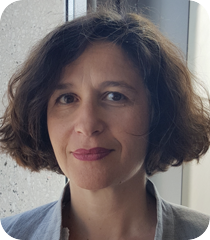 Anna D'Addio
Anna D'Addio
-
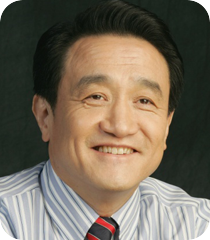 Dong Sung Cho
Dong Sung Cho
-
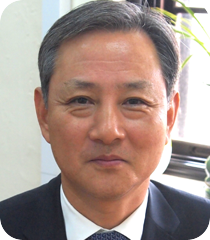 In Kwon Chung
In Kwon Chung
-
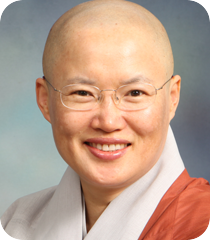 Ven. Dae An
Ven. Dae An
-
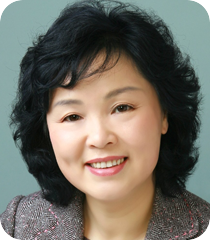 Kyeong-hae Han
Kyeong-hae Han
-
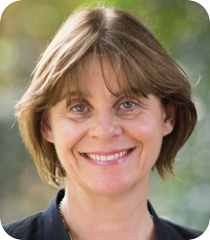 Sarah Harper
Sarah Harper
-
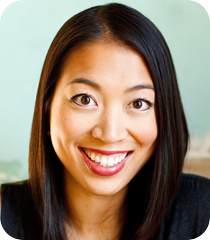 Elise Hu
Elise Hu
-
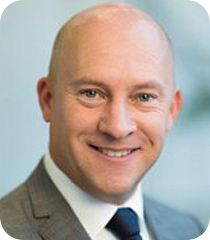 Patrick Johansson
Patrick Johansson
-
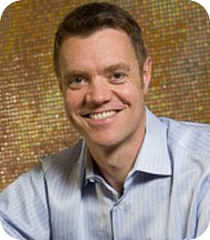 Stephen Johnston
Stephen Johnston
-
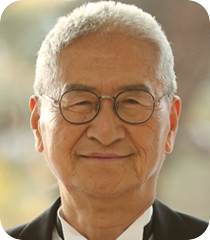 Djun-kil Kim
Djun-kil Kim
-
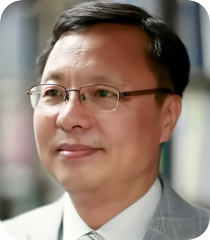 Dong Goo Kim
Dong Goo Kim
-
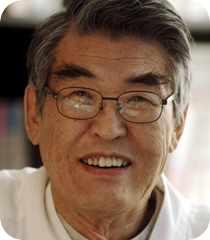 Ji-ha Kim
Ji-ha Kim
-
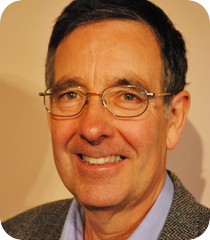 Tom Kirkwood
Tom Kirkwood
-
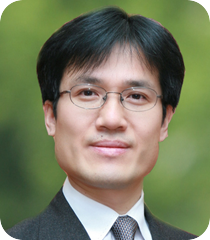 Soonman Kwon
Soonman Kwon
-
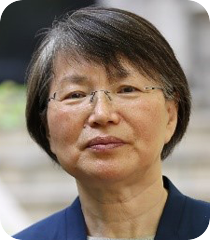 Kong-Joo Lee
Kong-Joo Lee
-
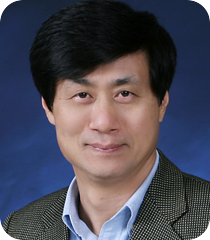 Woo Il Lee
Woo Il Lee
-
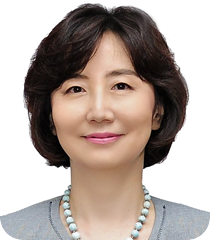 Inhee Mook-Jung
Inhee Mook-Jung
-
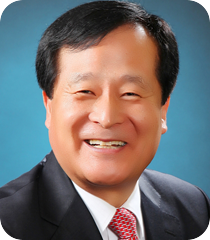 Sang Chul Park
Sang Chul Park
-
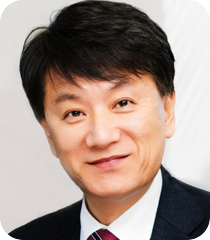 Tai Hyun Park
Tai Hyun Park
-
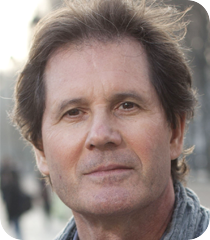 Jean-Marie Robine
Jean-Marie Robine
-
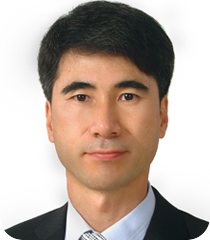 Eunsoo Shim
Eunsoo Shim
-
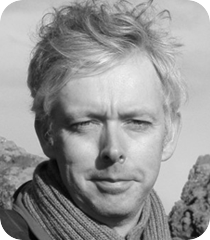 Adam Smith
Adam Smith
-
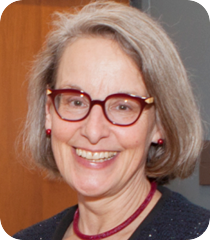 Ursula Staudinger
Ursula Staudinger
-
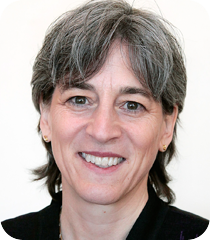 Juleen Zierath
Juleen Zierath
Nobel Prize Dialogue Seoul 2017
-
-

- Anna D'Addio
-
Anna Cristina D'Addio is an economist by background and has worked as a Senior Policy Analyst in the GEM Report team at UNESCO since March 2017.
Prior to this position, Anna worked at the OECD on a comprehensive list of issues including financial education and literacy, the life course approach to social policy and the decline of fertility, with a particular emphasis on the role of policies. In that role she co-authored leading OECD publications such as “Growing Unequal?”, “Pensions at a Glance” and “Pensions Outlook”.
Before joining the OECD Anna was a research professor in micro-econometrics applied to labour market/education issues. She has taught and carried out research at the Center for Applied Econometrics, University of Copenhagen; the Higher Institute for Labour Studies, Catholic University of Leuven; the Department of Economics, University of Aarhus; the Center for Research in Integration, Education, Qualifications and Marginalization, of the Aarhus Business School; and the Center of Operations Research and Econometrics (CORE), and Institute of Economic and Social Research (IRES) of the Catholic University of Louvain-la-Neuve. She holds a Ph.D. in Quantitative Economics from CORE and IRES, a Doctorate in Public Economics from the University of Pavia and a Master in Quantitative Economics from CORE.
- PROGRAM
-
- 12:10 ~ 12:25
- Intergenerational contracts/education (Auditorium, COEX 3F)
- 15:15 ~ 16:00
- Economic Opportunities of Ageing (Harmony Ballroom, InterContinental Seoul COEX B1F)
-
-
-

- Dong Sung Cho
-
Dong-Sung Cho has assumed Presidency of Incheon National University (INU) on July 29th 2016 as its 15th President. He was Professor of Strategy, International Business, Management Design, and Sustainability Management at Seoul National University (SNU) in Korea during 1978-2014, and Professor of Strategy at Cheung Kong Graduate School of Business (CKGSB) in Beijing, China during 2014-2016.
He received a doctoral degree from Harvard Business School in 1976, and worked at Boston Consulting Group and Gulf Oil’s Planning Group before joining SNU in 1978. He was a visiting professor at Harvard Business School, University of Michigan, Boston University, Duke University, INSEAD, Helsinki School of Economics, University of Sydney, the University of Tokyo, Hitotsubashi University, Peking University, Zhejiang University, and Nankai University.
He has pioneered new frontiers in, and conducted extensive research into, management theories on the subjects of the General Trading Company (1978-1985), Korea's Chaebol Group (1985-present), National Competitiveness (1986-present), Design Theory and Management Design (1993-present), the Subject-Environment-Resource-Mechanism (SER-M) Model to categorically identify causes of the effects (1973-present), and most importantly the Mechanism-Based View (MBV) of strategy (1992-present).
He has actively researched into the issues of competitiveness of nations, competitiveness of cities, and nation brand, having published annual reports respectively on rankings of the 3 above-mentioned issues. He had consulted the governments of Malaysia, Sri Lanka, Honduras, and United Arab Emirates to increase the level of national competitiveness of each of these countries. He has actively promoted start-ups of college students since 2000. Since then, approximately 30 students at SNU started start-ups, of which at least 7 have successfully gone through either IPO or sell-out.
- PROGRAM
-
- 15:15 ~ 16:00
- Economic Opportunities of Ageing (Harmony Ballroom, InterContinental Seoul COEX B1F)
-
-
-

- In Kwon Chung
-
In Kwon Chung was born in 1958 in Korea and earned his B.S. (1981) and M.S. (1985) from Yonsei University in Korea. He received his Ph.D in Molecular Genetics in 1991 from Ohio State University, following which he moved to Harvard Medical School as a postdoctoral fellow (1992-1993). In 1993 he took up his first academic position as an Assistant Professor in Yonsei University. Dr. Chung is currently a Full Professor at Yonsei University (1993-present).
Dr. Chung has been appointed Dean of College of Life Science and Biotechnology (2008-2010) and Vice President for Academic Affairs at Yonsei University (2012-2016). He was a Director and chaired the Molecular Aging Research Center (2003-2008) and Integrated Omics for Biomedical Science Center supported by WCU Program (2008-2013) in Korea. He also served as Vice President of Korean Society for Molecular and Cell Biology (2011).
His main research activities have been in aging and cancer biology, with the goal of understanding telomerase and telomere biology which is responsible for replicative senescence and tumor cell growth. His laboratory was first to identify the E3 ubiquitin ligase for hTERT, a catalytic subunit of the enzyme telomerase. He also characterized the biogenesis, assembly, and nuclear trafficking of telomerase in cancer cells. He is currently studying the role of telomere length in age-related diseases and the regulatory mechanism that maintain telomere length in cancer.
- PROGRAM
-
- 14:15 ~ 15:00
- The Biology of Ageing (Harmony Ballroom, InterContinental Seoul COEX B1F)
-
-
-

- Ven. Dae An
-
Venerable Dae An was born in 1960 in the city of Jeonju, North Jeolla Province and became a Buddhist nun in 1986. She received a Ph.D. in Food and Nutrition at Dongguk University Graduate School, and her doctoral thesis was titled, “A Comparative Study on the Dietary Culture of Zen Buddhist Temples in Korea, China and Japan.”
For the past 30 years, Venerable Dae An has been active as a temple food lecturer. Serving as the head of a Buddhist temple, she has appeared in various journals and programs on public broadcasting channels. As part of her efforts to popularize Korean temple cuisine, she runs Balwoo Gongyang, a restaurant specializing in temple cuisine.
Venerable Dae An is Director of the Geumdang Temple Cuisine Culture Center and has served as Special Advisor for temple cuisine in the Jogye Order of Korean Buddhism. Her books on temple cuisine include 'Buddhist Cuisine Diet for the Mind', 'Meditation on the Table', '12 Months of Temple Cuisine (volume 1 & 2)', and 'Dae Ahn’s Recipes of Love.'
Venerable Dae An teaches temple cuisine at the Graduate School of Education at Dongguk University and has given special lectures at culinary schools such as the CIA in the US and Le Cordon Bleu Australia.
Through education, she hopes to illustrate to others that temple cuisine is not merely Buddhist cuisine, it is cuisine that brings forth peace among mankind, and pursues respect for life and coexistence of all living things.
- PROGRAM
-
- 16:20 ~ 16:30
- Interview (Auditorium, COEX 3F)
-
-
-

- Kyeong-hae Han
-
Dr. Gyounghae Han received her Ph.D. degree in Human Development and Family Studies from the Pennsylvania State University. After completing her Ph.D., She joined faculty of Seoul National University(SNU) in 1990. She teaches courses in gerontology, family demography and family relationships. She is a founding director of Translational Gerontology and Retirement Research Center and Professor in Charge of ‘The University of Third Age, SNU’. She also runs the ‘SNU Advanced Program for CEOs on Well Aging and Senior Business’.
She has served as President of the Korean Association of Gerontology and also as President of National Council of Family Relations. She served as a board member of the Advisory Council for President of Korea. Dr. Han is also a founding member of Global Social Initiative on Aging(GSIA) network which belongs to International Association of Gerontology and Geriatrics(IAGG). She is also a Korean representative for International Consortium of Centenarian Studies.
Dr. Han publishes over 300 journal articles and book chapters in the various areas of family and aging. Her main research area includes aging and life course transitions, aging families and intergenerational relationships, ageism, and cohort specific aging process such as aging experience of Baby Boomers, of centenarians.
- PROGRAM
-
- 14:15 ~ 15:00
- Attitudes to Ageing (Harmony Ballroom, InterContinental Seoul COEX B1F)
-
-
-

- Sarah Harper
-
Sarah is Professor of Gerontology at the University of Oxford and Co-Director of the Oxford Institute of Population Ageing which she founded in 1997 with funding from the NIA. Sarah was appointed in 2014 to the Prime Minister’s Council for Science and Technology, which advises the Prime Minister on the scientific evidence for strategic policies and frameworks. She chaired the UK government’s Foresight Review on Ageing Populations, and the European Ageing Index Panel for the UNECE Population Unit. She is a Governor of the Pensions Policy Institute. Sarah was the first holder of the International Chair in Old Age Financial Security at the University of Malaya (2009/10) and her research was recognized by the 2011 Royal Society for Public Health: Arts and Health Research Award. She is a Fellow of the Royal Anthropology Institute and of the Royal Society of Arts. Her latest book, How Population Change will Transform our World is published by Oxford University Press.
- PROGRAM
-
- 11:30 ~ 11:45
- Introducing the demographics of ageing (Auditorium, COEX 3F)
- 14:15 ~ 15:00
- Attitudes to Ageing (Harmony Ballroom, InterContinental Seoul COEX B1F)
- 15:15 ~ 16:00
- Economic Opportunities of Ageing (Harmony Ballroom, InterContinental Seoul COEX B1F)
-
-
-

- Elise Hu
-
Elise Hu is the Seoul Bureau Chief and Asia correspondent for NPR, an American broadcast and digital network that reaches 1,000 affiliate stations across the United States.
Her coverage area includes both Koreas and Japan, and she pitches into cover stories across the Asian region. Previously, she covered the intersection of technology and culture for the network from Washington, D.C.
She joined NPR in 2011 following television reporting jobs in Texas, South Carolina and Missouri. An honors graduate of the University of Missouri-Columbia's School of Journalism, Elise's work has earned a Gannett Foundation Award for Innovation in Watchdog Journalism and a National Edward R. Murrow award for best online video.
Outside of work, she's an adviser to the John S. and James L. Knight Foundation, a panelist on the Korean network Arirang’s program, Foreign Correspondents, sits on the board of Grist magazine and is a member of the Council on Foreign Relations.
- PROGRAM
-
- 14:15 ~ 15:00
- Technological Innovations (Harmony Ballroom, InterContinental Seoul COEX B1F)
-
-
-

- Patrick Johansson
-
Mr. Patrick Johansson is CEO of Ericsson-LG and Head of Customer Unit Korea in Ericsson.
He joined Ericsson in 1997 and has since then held various management positions mainly in Finance across the group. Prior to being appointed to his current role he spent 10 years outside Sweden in position such as VP & CFO Region India, CFO Market Unit Central Europe, based in Austria, CFO Nanjing Ericsson Panda, based in China and Head of Finance, HR & Administration in Ericsson Vietnam. He graduated Gothenburg School of Economics & Commercial Law in Sweden, and earned Masters of Science in Business Administration. He also completed executive educations from Columbia Business School in New York and IMD (International Institute for Management Development) in Lausanne in Switzerland.
- PROGRAM
-
- 15:15 ~ 16:00
- Mobility and Cognition (Harmony Ballroom, InterContinental Seoul COEX B1F)
-
-
-

- Stephen Johnston
-
Stephen Johnston is the co-founder and CEO of Aging2.0, an innovation community with 50+ global chapters and 150+ corporate partners taking on the 'Grand Challenges' of aging.
Stephen is the founder of Fordcastle, an innovation consultancy, co-author of Growth Champions (Wiley, 2012), and an Expert with the Future Agenda, the world’s largest open foresight initiative. Stephen serves on the board of Music and Memory, a New York-based 501c3 nonprofit that brings personalized music to older people. He has an MA in Economics from Cambridge University and an MBA from Harvard Business School where he was a Fulbright Scholar
- PROGRAM
-
- 11:45 ~ 12:10
- How will increased longevity change society? (Auditorium, COEX 3F)
- 14:15 ~ 15:00
- Technological Innovations (Harmony Ballroom, InterContinental Seoul COEX B1F)
-
-
-

- Djun-kil Kim
-
Prof. Djun Kil Kim is now conducting research and writing on the political economic history of South Korea at Institute for Economic Research, Seoul National University, after his Korean government service for more than two decades and his teaching and conducting research on Korean history and culture for more than a decade at various institutions at home and abroad, including Graduate School of International Studies, Yonsei University, Brigham Young University in the United States, Stockholm University in Sweden, and University of Asia & the Pacific in the Philippines.
While staying at BYU in 2003/4, Prof. Kim wrote The History of Korea, a comprehensive Korean history book for the English-speaking audience, which was published in 2005 by Greenwood Press in the United States. Its revised edition The History of Korea Second Edition was published in 2014 by Greenwood Press (imprint of ABC-CLIO) in the United States.
Distinguished Service Medal of the Korean Government was awarded to Prof. Kim in 1996 for his government service. For his contribution to Korean studies abroad, Prof. Kim received Global Korea Award by Council on Korean Studies at Michigan State University in 2011 and “Diplomat of the Year 2011” by Youngsan Foundation affiliated to Ministry of Foreign Affairs of the Republic of Korea in 2012.
Born in 1940 in Seoul, Prof. Kim earned Bachelor’s and Master’s Degrees in Sociology at Seoul National University in 1962 and 1964 respectively.
- PROGRAM
-
- 12:25 ~ 12:35
- Interview (Auditorium, COEX 3F)
-
-
-

- Dong Goo Kim
-
Dong Goo KIM was born in 1955 in Seoul, Korea. He graduated from Yonsei University College of Medicine, Korea and got a M.D. degree in 1979. He received his 1st Ph.D. at Yonsei University in 1988. Then he studied neurobehavioral pharmacology at University of Minnesota and received 2nd Ph.D. in 1992. After returning to Korea, he became a faculty member in the department of Pharmacology, Yonsei University College of Medicine. Now he is a professor in the department of Pharmacology and an adjunct professor in the department of Psychiatry.
He served as the chairman of the department of Pharmacology (2004-2012), and The Korean Society for Brain and Neural Science (2006-2008), and The Korean Society of Pharmacology (2011-2012). He was interested in the activities of Korean Academy of Medical Sciences and served as Director and Vice President and now serves as Auditor. He is also the president of the Korea Stress Association, a nonprofit organization, and the Holistic Mind Institution.
He has studied in the field of neurobehavioral pharmacology and especially focused on Stress Management. He recently drew attention from society through a paper (Nature Neuroscience, 2015) revealed brain factors for controlling resilience to stress.
He extended research area to human and collaborated with Social Welfare researchers. He studied stress management in North Korean refugees, victims of domestic violence and middle-aged women with a comprehensive bio-medico-psycho-social approach. Now he is trying to apply his research results to rapidly changing Korean Society.
- PROGRAM
-
- 15:15 ~ 16:00
- Strategies for Healthy Ageing (Harmony Ballroom, InterContinental Seoul COEX B1F)
-
-
-

- Ji-ha Kim
-
Ji-ha Kim was born in 1941 in Mokpo, Jeollanam-do. In 1966, he graduated with a degree in Aesthetics from Seoul National University. He is now nominated as the Chaired Professor at Konkuk University, Seoul, Korea.
In March 1963, under the pen name Ji-ha(Korean word for "underground"), he published the poem "Evening Story" (Jeonyeok iyagi) in the journal Mokpo Literature. He made his official literary debut in 1969.
He first came to widespread attention in May 1970 with his poem "Five Bandits(Ojeok)", which led to him being arrested under the Anti-Communist Law, though the poem says nothing about either communism or North Korea.
His collection of lyrical poetry includes "Looking up at a Starry Field", "The Yellow Earth", " With a Burning Thirst", "The Agony of the Center", etc. Kim has displayed a broad literary range including both narrative and lyrical poems, ballads, drama, and prose.
He has received many prizes and awards accumulating "Lotus Prize for Literature(1975)","Grand Poet Prize at the International Poets' Conference(1981)".
- PROGRAM
-
- 12:25 ~ 12:35
- Interview (Auditorium, COEX 3F)
-
-
-

- Tom Kirkwood
-
Tom Kirkwood is Professor Emeritus at Newcastle University, where he has directed the Institute for Ageing and Health since 2004 and was Dean for Ageing from 2010-2015. He now also holds a part-time professorship at the University of Copenhagen Centre for Healthy Ageing.
His primary work is on the scientific basis of ageing, examining why and how we age and the underlying causes of age-related disability and disease. He led a major population-based investigation (the Newcastle 85+ Study) examining the spectrum of health and associated biological, functional and psychosocial measures in a cohort of very old people.
He is a Fellow of the UK Academy of Medical Sciences and works with bodies in the business, professional and voluntary sectors, as well as advising the UK government and international organisations on aspects of population ageing. He has contributed extensively to shaping the public debate on ageing through frequent contributions to television, radio, and print media.
His books include the award-winning ‘Time of Our Lives: The Science of Human Ageing’, ‘Chance, Development and Ageing’ (with Caleb Finch), ‘The End of Age’ based on his 2001 BBC Reith Lectures, and ‘An Age of Wonders: the Story of the Newcastle 85+ Study’ (with Gordon Morris).
- PROGRAM
-
- 10:05 ~ 10:30
- Why do we age? The science of ageing (Auditorium, COEX 3F)
- 12:50 ~ 13:00
- How old will we get? (Auditorium, COEX 3F)
- 14:15 ~ 15:00
- The Biology of Ageing (Harmony Ballroom, InterContinental Seoul COEX B1F)
-
-
-

- Soonman Kwon
-
Soonman Kwon is Professor and Former Dean of the School of Public Health at Seoul National University in South Korea. He has held visiting positions at the Harvard School of Public Health, London School of Economics, University of Toronto, and Peking University. He was president of the Korean Association of Schools of Public Health in 2013–14 and of the Korean Gerontological Society in 2015–16, and is president-elect of the Korean Health Economic Association. He was the Chief of the Health Sector Group in the Asian Development Bank (ADB) in 2016-17. He is currently the Associate Editor of Health Policy (Elsevier), and was editor of the Korean Journal of Public Health in 2007–09 and the Korean Journal of Health Economics in 2014–15. With WHO, World Bank, GIZ, and ADB, he has worked on the health system and financing in Algeria, Bhutan, Cambodia, China, Egypt, Ethiopia, Fiji, Ghana, India, Indonesia, Kazakhstan, Kenya, Lao PDR, Malaysia, the Maldives, Mongolia, Myanmar, Nepal, Pakistan, Philippines, South Africa, Uganda, and Vietnam. He holds PhD in health economics from the Wharton School of the University of Pennsylvania (1993) and taught at the University of Southern California School of Public Policy.
- PROGRAM
-
- 11:45 ~ 12:10
- How will increased longevity change society? (Auditorium, COEX 3F)
-
-
-

- Kong-Joo Lee
-
Kong-Joo Lee was born in 1955 in Seoul, Korea. She graduated from Ewha Womans University, received her doctorate from Chemistry at the Stanford University in 1986. After a post-doctoral training in Cancer Biology at Stanford Medical School, she became senior researcher in Korea Research Institutue of Standards and Science (KRISS) (1989-1994), then professor at Ewha Womans University in 1994 til now, when she was appointed Professor at Ewha Womans University (2015).
She has been professor at Ewha Womans University as a Chair of the Division of Molecular Life Sciences (1999-2006), Provost for Research Affair (2005-2006) and Dean of Graduate School (2010-2014). She became a member of KAST (Korea Academy of Science and Technology) in 2007. In 2011, she has been elected as President of INWES (International Network of Women Engineers and Scientists), a position she held until October 2017 for supporting womens’ network in science and engineering worldwide.
Kong-Joo Lee’s research has mostly taken place in the laboratory Ewha Womans University, Her main research activities has been in research on protein regulation in ROS-related signaling processes related to cancer metastasis and angiogenesis employing cutting edge technology proteomics by developing the methodologies for redox-proteomics. She served on the Editorial Board of the Journal Molecular & Cellular Proteomics (MCP, ASBMB), USA (2001-2006) and fostered the science in Ewha Womans University by serving as a chair of program project National Core Research Center (2006-2013).
Kong-Joo Lee has received many prizes and award including Korea Loreal-UNESCO Award (2012)
- PROGRAM
-
- 16:20 ~ 16:30
- Interview (Auditorium, COEX 3F)
-
-
-

- Woo Il Lee
-
Woo Il Lee received his education from Seoul National University (B.S. in 1976 and M.S. in 1978) and the University of Michigan (Ph.D. in 1983). After working as a postdoctral researcher at Stanford University, he spent two years as a senior researcher at Korea Institute of Mechinery and Materials. He joined Seoul National University in 1987 where he is a full professor in the Department of Mechanical and Aerospace Engineering.
He served various administrative positions at the university such as the Department Chairman, the Dean of Engineering and the Vice President of Research. He visited Stanford University for one one year as a visiting professor in 1993 and spent three months at Ecole des Mines de Saint Etienne as a visiting professor in 2003.
He was the President of Korean Society for Composite Materials and the Chairman of the Organizing Committee of ICCM-18 held in Jeju Island, Korea in 2011. He is serving as the Asian regional editor of Journal of Composite Materials and Vice President of ICCM (Region 2). He is a member of Korea Academy of Science and Technology and a fellow of American Society of Mechanical Engineers. His research interests include analysis and modeling of composites manufacturing processes and polymer molding processes.
- PROGRAM
-
- 15:15 ~ 16:00
- Mobility and Cognition (Harmony Ballroom, InterContinental Seoul COEX B1F)
-
-
-

- Inhee Mook-Jung
-
Prof. Inhee Mook-Jung was born in 1963 in Seoul. She graduated from Seoul National University in 1986 (College of Natural Sciences, BS). She received her doctoral degree from University of Arizona (School of Medicine, PhD) in 1995. After post-doctoral training at UC San Diego, she came back to Korea and started to faculty position at Ajou University School of Medicine from 1996 to 2003 (Research Instructor, Assistant and Associate Professor). In 2004, she moved to Seoul National University College of Medicine (Department of Biochemistry and Molecular Biology) as a Professor. She has been a dean of the Department of Biomedical Science at Seoul National University College of Medicine(2012-2014). At present, she is a department chair of the Biochemistry and Molecular Biology at Seoul National University College of Medicine.
She has been working on the field of neuroscience, especially molecular pathogenesis of Alzheimer’s disease (AD). She is now focused on Abeta and tau axis using various animal models to figure out the triggering molecules for the disease. Also, identification of blood biomarker for early diagnosis and therapeutic targets for AD.
- PROGRAM
-
- 15:15 ~ 16:00
- Strategies for Healthy Ageing (Harmony Ballroom, InterContinental Seoul COEX B1F)
-
-
-

- Sang Chul Park
-
Brief biography of Sang Chul Park, M.D, Ph.D Chair Professor Well Aging Research Center Department of New Biology DGIST
Dr. Sang Chul Park has received his MD and PhD degrees from Seoul National University, and has finished his postdoctoral fellowship at Earl Stadtman's Laboratory, NIH, USA. He is now nominated as the Chaired Professor for Well Aging Research Center at DGIST. He served as Professor of Biochemistry and Molecular Biology of Seoul National University Medical School for 33 years, and Directors to Aging and Apoptosis Research Center sponsored by the Ministry of Science and Technology, WHO collaborating center for Physical Culture and Aging Research for Health Promotion as well as the Institute on Aging, Seoul National University. After retirement from SNU, he extended his work as Professor and Director of Lee Gil Ya Cancer and Diabetes Institute, Gachon University and Executive Vice President at Well Aging Research Center, SAIT. He has contributed a great deal in establishing and promoting many Biomedical societies in Korea, serving as the Presidents to Korean Society of Biomedical Gerontology, Federation of Korean Gerontological Societies, Korean Society of Biochemistry and Molecular Biology, Korean Society of Molecular and Cellular Biology and International Association of Biomedical Gerontology, etc.
He has initiated the Korean longitudinal study on aging and centenarian study. For his services, he has been awarded with many academic prizes including the National Medal of Honor (Moran Jang) by President of Korea and IAGG Presidential Award. He served as the Editor to Mechanism of Ageing and Development and also the regional editor for Journal of Cancer Research and Clinical Oncology.
- PROGRAM
-
- 10:05 ~ 10:30
- Why do we age? The science of ageing (Auditorium, COEX 3F)
-
-
-

- Tai Hyun Park
-
Tai Hyun Park is President of KOFAC (Korea Foundation for the Advancement of Science and Creativity), and also Professor at the School of Chemical and Biological Engineering, Seoul National University. He received his B.S. degree (Seoul National University), M.S. degree (KAIST), and Ph.D. degree (Purdue University) all in Chemical Engineering, and was a postdoctoral fellow at the University of California at Irvine. He was a visiting professor at the University of California at Irvine and Cornell University.
He is a Member of The Korean Academy of Science and Technology (KAST) and Member of The National Academy of Engineering of Korea (NAEK). He is a Fellow of the University of Tokyo. He is serving as Editor of “Biotechnology Journal (Wiley)” and “Enzyme and Microbial Technology (Elsevier)”, Editorial Board Member of "Biotechnology and Applied Biochemistry (Wiley)” and "Biotechnology and Bioprocess Engineering (Springer)”, and Advisory Board Member of "Advanced Biosystems (Wiley)”. He is currently serving as Appointed Director of National Research Council of Science & Technology. He served as President of The Korean Society for Biotechnology and Bioengineering (KSBB), President of Advanced Institutes of Convergence Technology (AICT), and President of Bio-MAX Institute.
His research area is bioelectronic nose and tongue, cellular engineering, and nanobiotechnology. Especially he is trying to develop human nose-like bioelectronic nose and human tongue-like bioelectronic tongue by integrating the human olfactory and taste receptors with nanotechnology.
- PROGRAM
-
- 12:50 ~ 13:00
- How old will we get? (Auditorium, COEX 3F)
- 15:15 ~ 16:00
- Mobility and Cognition (Harmony Ballroom, InterContinental Seoul COEX B1F)
-
-
-

- Jean-Marie Robine
-
Professor Jean-Marie Robine is a Research Professor at INSERM, the French National Institute of Health and Medical Research, within the CERMES3 Research group in Paris and the Unit 1198 in Montpellier, where he heads the research team Biodemography of longevity and vitality. He is also a Professor at the advanced school Ecole pratique des hautes études in Paris. He studies human longevity, with the aim of understanding the relationship between health and longevity. In particular, he measures the impact that the increase in adult life durations may have on the health status of the elderly population. In his most recent work, he takes into account the changing climate.
Since its creation in 1989, he has been the coordinator of the International Network on Health Expectancy (REVES), which brings together more some 100 researchers worldwide. He was the project leader of the European Joint Action EHLEIS (2011-2014) which provided analysis of disability-free life expectancies in the European Union.
He is part of the BRIDGE-Health project (2015-2017) which aims to prepare the transition towards a sustainable and integrated EU health information system. He is co-responsible for the development of the International Database on Longevity (IDL) in association with the Max Planck Institute for Demographic Research (Rostock) and INED (Paris). He is the project leader of the healthy longevity project granted by AXA Research Fund: the Five-Country Oldest Old Project (5-COOP). He is one of the Directors of the French Research Consortium on ageing and longevity (GDR CNRS 3662, 2014-2017) which provides a portal to research on ageing in France.
- PROGRAM
-
- 10:30 ~ 10:45
- Can healthspan match lifespan? (Auditorium, COEX 3F)
- 12:50 ~ 13:00
- How old will we get? (Auditorium, COEX 3F)
- 15:15 ~ 16:00
- Strategies for Healthy Ageing (Harmony Ballroom, InterContinental Seoul COEX B1F)
-
-
-

- Eunsoo Shim
-
Eunsoo Shim was born in 1966 in Seoul, Korea. He graduated from Seoul National University with Master of Science degree in 1991 and earned his PhD in Electrical Engineering from Columbia University in the City of New York in 2004.
He started his career in the industry of computer network HW and SW in 1991 and worked on network technologies such as data networking, multimedia networking, wireless Internet, and standardization of the Internet protocols. He expanded his research interest into artificial intelligence technologies in 2010.
Since 2011, he has been with Samsung Advanced Institute of Technology which is the corporate research arm of Samsung Electronics. He is a vice president and the head of Software Solution Lab at the company and has been leading development of Deep Learning based artificial intelligence technologies. His lab successfully developed world-class deep learning based speech recognition, natural language understanding, and face authentication technologies that have been applied in Samsung’s products. This year, his lab acquired a license for public road test driving for their autonomous test vehicle powered by the autonomous driving technologies developed by his lab and is currently conducting road driving test of the autonomous vehicle.
- PROGRAM
-
- 14:15 ~ 15:00
- Technological Innovations (Harmony Ballroom, InterContinental Seoul COEX B1F)
-
-
-

- Adam Smith
-
Adam SMITH is Chief Scientific Officer of the Nobel Foundation’s media company, Nobel Media AB. Following Fellowships at Oxford, Harvard and the University of Heidelberg he pursued research in developmental neuroscience at Oxford University, before moving into science publishing, working as a Chief Editor and Publisher with Elsevier and Nature Publishing Group.
- PROGRAM
-
- 10:45 ~ 11:00
- Conversation on The Century of Vision (Auditorium, COEX 3F)
- 14:15 ~ 15:00
- Attitudes to Ageing (Harmony Ballroom, InterContinental Seoul COEX B1F)
- 15:15 ~ 16:00
- Technological Innovations (Harmony Ballroom, InterContinental Seoul COEX B1F)
- 16:30 ~ 16:55
- Technological Innovations (Auditorium, COEX 3F)
-
-
-

- Ursula Staudinger
-
Dr. Ursula M. Staudinger is a lifespan psychologist and ageing researcher. She is known for her work on the positive plasticity of ageing (cognition, personality) as well as her research on resilience and on wisdom. Recently she has conducted groundbreaking studies to better understand the cumulative effects of work on cognitive aging.
She received her PhD from the Free University of Berlin, was Senior researcher at the Max Planck Institute for Human Development, Professor for Lifespan Psychology at Dresden University, and Founding Dean of the Jacobs Center on Lifelong Learning and Institutional Development at Jacobs University Bremen. Since 2013 she has been the founding director of the new Robert N. Butler Columbia Aging Center (CAC).
The Aging Lab of the CAC is conducting interdisciplinary ageing research, and the International Longevity Center (ILC) USA focuses on knowledge transfer to policy makers and companies, as well as the general public.
Ursula Staudinger is also Vice President and Foreign Secretary of the German National Academy of Sciences and Chairwoman of the Board of the Federal Institute for Population Research, and is advising governments around the world on issues of population ageing.
In 2014, Dr Staudinger was awarded the Braunschweig Research Prize for her outstanding research on the plasticity of the ageing process and its consequences for demographic change. She is also the 2016/17 recipient of the Seneca Medal, which acknowledges outstanding research on ageing with international impact.
She publishes her work in top-level Journals such as Annual Review of Psychology, Psychology and Aging, Journals of Gerontology, Developmental Psychology, Journal of Personality and Social Psychology, Frontier of Neuroscience or Ageing and Society. As co-chair of the National Academy Network on the future of Aging, she co-authored the Recommendations “More Years, More Life”.
- PROGRAM
-
- 11:45 ~ 12:10
- How will increased longevity change society? (Auditorium, COEX 3F)
- 12:35 ~ 12:50
- The positive plasticity of human ageing (Auditorium, COEX 3F)
- 14:15 ~ 15:00
- Attitudes to Ageing (Harmony Ballroom, InterContinental Seoul COEX B1F)
- 15:15 ~ 16:00
- Mobility and Cognition (Harmony Ballroom, InterContinental Seoul COEX B1F)
-
-
-

- Juleen Zierath
-
Juleen R. Zierath is Professor of Clinical Integrative Physiology and Head of the Section of Integrative Physiology at the Department of Molecular Medicine and Surgery and the Department of Physiology and Pharmacology at Karolinska Institutet. She is also Professor of Integrative Physiology at University of Copenhagen, where she is a Scientific Director at the Novo Nordisk Foundation Center for Metabolic Research.
Professor Zierath’s research has provided evidence for the physiological regulation of insulin signaling pathways in skeletal muscle, revealing key steps which are impaired in diabetic patients. As an exercise physiologist, she has a long-standing interest in the health-promoting benefits of physical exercise. The ultimate goal of her work is to identify and validate molecular candidates to prevent or treat insulin resistance in type 2 diabetes. Improving insulin sensitivity should alleviate diabetic complications and enrich the quality of life for the diabetic patient.
Professor Zierath is President of the European Association for the Study of Diabetes and the European Foundation for the Study of Diabetes.
Professor Zierath is a member of the Royal Swedish Academy of Sciences and the Nobel Assembly. She was Chair of the Nobel Committee at Karolinska Institutet between 2013 and 2015 and is currently a member of this Committee.
- PROGRAM
-
- 10:05 ~ 10:30
- Why do we age? The science of ageing (Auditorium, COEX 3F)
- 14:15 ~ 15:00
- The Biology of Ageing (Harmony Ballroom, InterContinental Seoul COEX B1F)
- 15:15 ~ 16:00
- Strategies for Healthy Ageing (Harmony Ballroom, InterContinental Seoul COEX B1F)
-